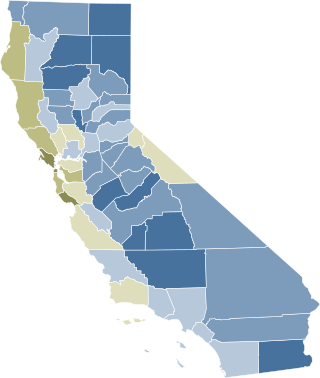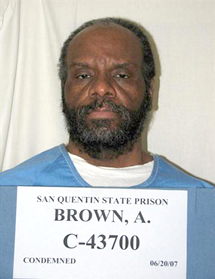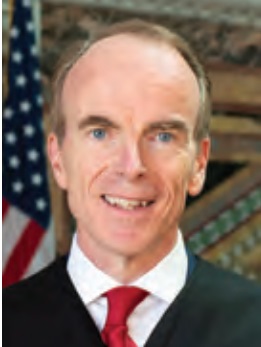Same-sex marriage has been legal in California since June 28, 2013. The U.S. state first issued marriage licenses to same-sex couples on June 16, 2008 as a result of the Supreme Court of California finding in the case of In re Marriage Cases that barring same-sex couples from marriage violated the Constitution of California. The issuance of such licenses was halted from November 5, 2008 through June 27, 2013 due to the passage of Proposition 8—a state constitutional amendment barring same-sex marriages. The granting of same-sex marriages recommenced following the U.S. Supreme Court's decision in Hollingsworth v. Perry, which restored the effect of a federal district court ruling that overturned Proposition 8 as unconstitutional.

Kahle v. Gonzales, 487 F.3d 697 is a First Amendment case that challenges the change in the US copyright law from an opt-in system to an opt-out system.
Gregory Reyes is an American businessman who most recently served as the chief executive officer (CEO) for Brocade Communications. He is the first person to have been convicted for fraudulent backdating of corporate stock options.
The Barry Bonds perjury case was a case of alleged perjury regarding use of anabolic steroids by former San Francisco Giants outfielder and all-time Major League Baseball (MLB) career home run leader, Barry Bonds, and the related investigations surrounding these accusations. On April 13, 2011, Bonds was convicted of one felony count of obstruction of justice for giving an incomplete answer to a question in grand jury testimony. A mistrial was declared on the remaining three counts of perjury, and those charges were dropped. The obstruction of justice conviction was upheld by an appellate panel in 2013, but a larger panel of the appellate court overturned the conviction in 2015.

Proposition 8, known informally as Prop 8, was a California ballot proposition and a state constitutional amendment intended to ban same-sex marriage; it passed in the November 2008 California state elections and was later overturned in court. The proposition was created by opponents of same-sex marriage in advance of the California Supreme Court's May 2008 appeal ruling, In re Marriage Cases, which followed the short-lived 2004 same-sex weddings controversy and found the previous ban on same-sex marriage unconstitutional. Proposition 8 was ultimately ruled unconstitutional by a federal court in 2010, although the court decision did not go into effect until June 26, 2013, following the conclusion of proponents' appeals.

Mohamed et al. v. Jeppesen Dataplan, Inc., is a case brought by the American Civil Liberties Union (ACLU) on behalf of five victims of extraordinary renditions against Jeppesen Dataplan, Inc., which had provided services that the Central Intelligence Agency (CIA) used to perform renditions.

Nordyke v. King was a case in the United States Court of Appeals for the Ninth Circuit in which a ban of firearms on all public property and whether the Second Amendment should be applied to the state and local governments is to be decided. After several hearings at different levels of the federal court system, Alameda County, California promised that gun shows could be held on county property, essentially repudiating its ordinance.
Hollingsworth v. Perry was a series of United States federal court cases that re-legalized same-sex marriage in the state of California. The case began in 2009 in the U.S. District Court for the Northern District of California, which found that banning same-sex marriage violates equal protection under the law. This decision overturned California ballot initiative Proposition 8, which had banned same-sex marriage. After the State of California refused to defend Proposition 8, the official sponsors of Proposition 8 intervened and appealed to the Supreme Court. The case was litigated during the governorships of both Arnold Schwarzenegger and Jerry Brown, and was thus known as Perry v. Schwarzenegger and Perry v. Brown, respectively. As Hollingsworth v. Perry, it eventually reached the United States Supreme Court, which held that, in line with prior precedent, the official sponsors of a ballot initiative measure did not have Article III standing to appeal an adverse federal court ruling when the state refused to do so.
Coleman v. Schwarzenegger, docket no. 2:90-cv-00520-LKK-JFM, is a federal class action civil rights lawsuit under the Civil Rights Act of 1871, Eighth and Fourteenth Amendment to the United States Constitution, and the Rehabilitation Act of 1973 alleging unconstitutional mental health care by the California Department of Corrections and Rehabilitation (CDCR).

Lucy Haeran Koh is an American lawyer serving as a United States circuit judge of the United States Court of Appeals for the Ninth Circuit. Koh previously served as a United States district judge of the United States District Court for the Northern District of California from 2010 to 2021. She also served as a California state court judge of the Santa Clara County Superior Court from 2008 to 2010. She is the first Korean American woman to serve on a federal appellate court in the United States.

Log Cabin Republicans v. United States, 658 F.3d 1162 was a federal lawsuit challenging the constitutionality of 10 U.S.C. § 654, commonly known as don't ask, don't tell (DADT), which, prior to its repeal, excluded homosexuals from openly serving in the United States military. The Log Cabin Republicans (LCR), an organization composed of lesbian, gay, bisexual, and transgender (LGBT) Republicans, brought the suit on behalf of LCR members who serve or served in the military and were subject to DADT.

Diaz v. Brewer, originally Collins v. Brewer No. 2:09-cv-02402-JWS (Az.Dist.Ct.), is a lawsuit heard on appeal by the United States Court of Appeals for the Ninth Circuit, which affirmed a lower court's issuance of a preliminary injunction that prevented Arizona from implementing its 2009 statute that would have terminated the eligibility for healthcare benefits of any state employee's same-sex domestic partner.

Albert Greenwood Brown Jr. is an American murderer and rapist who has been convicted of sexual molestation with force of a minor, two counts of first-degree rape with force, and the first degree murder of a teen girl in Riverside, California.
Omega S. A. v. Costco Wholesale Corp., 541 F.3d 982, was a case decided by the Ninth Circuit Court of Appeals that held that in copyright law, the first-sale doctrine does not act as a defense to claims of infringing distribution and importation for unauthorized sale of authentic, imported watches that bore a design registered in the Copyright Office. It is contrasted with Kirtsaeng v. John Wiley & Sons, Inc.

Navajo Nation v. United States Forest Service, 479 F.3d 1024, reversed after rehearing en banc, 535 F.3d 1058 was brought to the United States Court of Appeals for the Ninth Circuit in 2007. It was a case that was brought about by previous cases dealing with the expansion of the Snowbowl ski resort on the government-owned sacred lands of the Navajo peoples located in northern Arizona. In Navajo Nation v. U.S. Forest Service, the conflict escalated with the Federal government's use of artificial snow containing treated sewage on the sacred San Francisco Peaks, an area that is owned by the Federal government. The Navajo people, along with twelve other nations, made the appeal, citing that the use of sewage water violated the Religious Freedom Restoration Act.

Golinski v. Office of Personnel Management, 824 F. Supp. 2d 968, was a lawsuit filed in the United States District Court for the Northern District of California. The plaintiff, Karen Golinski, challenged the constitutionality of section 3 of the Defense of Marriage Act (DOMA), which defined, for the purposes of federal law, marriage as being between one man and one woman, and spouse as a husband or wife of the opposite sex.

Paul Jeffrey Watford is an American lawyer who served as a United States circuit judge of the United States Court of Appeals for the Ninth Circuit from 2012 to 2023. In 2016, The New York Times identified Watford as a potential Supreme Court nominee to replace Justice Antonin Scalia. Watford resigned his judgeship in 2023 and became a partner at the law firm Wilson Sonsini Goodrich & Rosati.
Arizona v. Inter Tribal Council of Arizona, Inc., 570 U.S. 1 (2013), is a 2012-term United States Supreme Court case revolving around Arizona's unique voter registration requirements, including the necessity of providing documentary proof of citizenship. In a 7–2 decision, the Supreme Court held that Arizona's registration requirements were unlawful because they were preempted by federal voting laws.

Peruta v. San Diego, 824 F.3d 919, was a decision of the United States Court of Appeals for the Ninth Circuit pertaining to the legality of San Diego County's restrictive policy regarding requiring documentation of "good cause" that "distinguish[es] the applicant from the mainstream and places the applicant in harm's way" before issuing a concealed carry permit.

Daniel Paul Collins is a United States circuit judge of the United States Court of Appeals for the Ninth Circuit.







